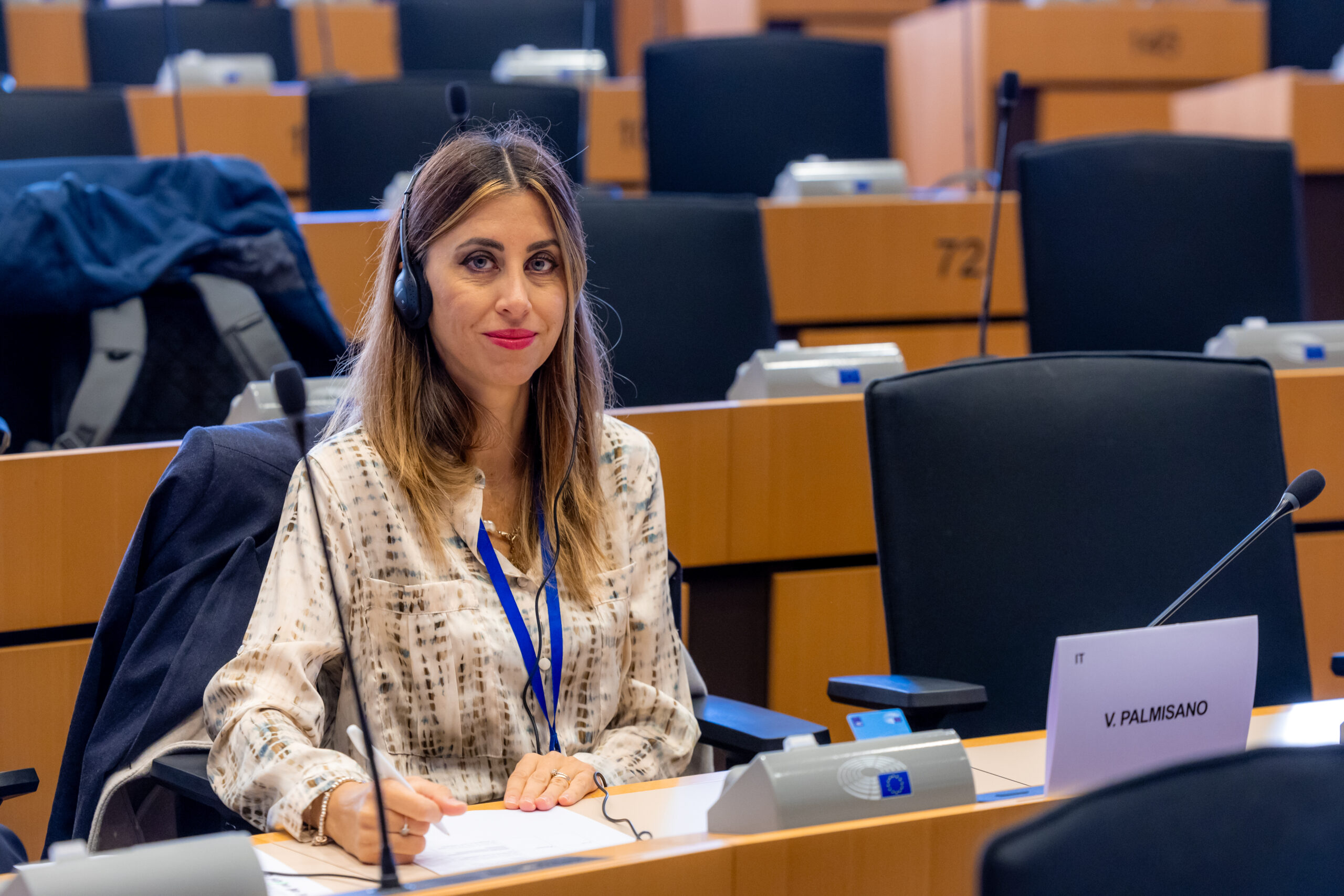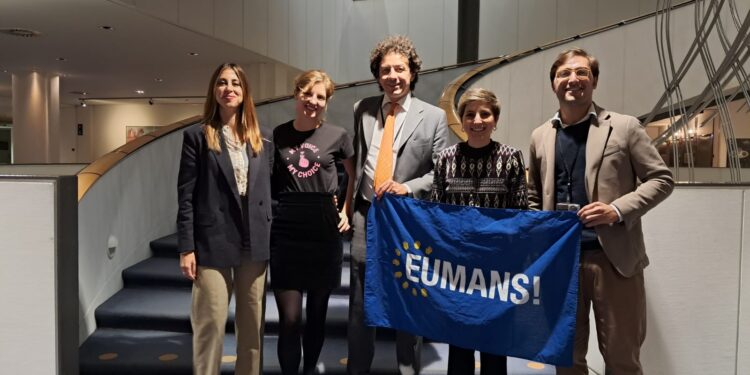Brussels – Six petitions, supported by 28 thousand European citizens and 45 NGOs, and a citizens’ initiative that has already collected 630 thousand signatures. From “civic” artificial intelligence to the decriminalization of cannabis, from stopping intensive livestock farms to euthanasia and abortion as a fundamental right. Marco Cappato presented today (Oct. 3) in the EU Parliament the numbers of his commitment leading Eumans, a movement for citizen participation in the EU legislative process and launched a call for a “pan-European transnational action for civil rights.”
Together with the Italian politician and activist were MEPs Valentina Palmisano of the 5 Star Movement—which hosted the conference—and Benedetta Scuderi of the Greens and Left Alliance. Support also came from the Democratic Party, while the governing coalition parties “will come; it always takes some time and trust,” Cappato commented with a smile.
Because beyond merit—all petitions touch on “the lives and civil rights of all of us,” Palmisano pointed out—Eumans’ initiative is about promoting an instrument—that of citizen initiatives—that too often remains on the margins of the democratic process.

At the European Parliament, around 1,500 petitions are submitted per year, far too few,” said the M5S MEP, who in Brussels is a member of the Petitions Committee, the college responsible for following up on petitions from European citizens and entities. “I think the right to petition is fundamental in the EU because it brings citizens closer to an institution that can sometimes seem distant and disconnected,” Palmisano continued.
Then, there is the European Citizens’ Initiative (ECI), a tool that allows one million citizens from at least seven member states to request the Commission to submit a legislative proposal in an area of its competence. The initiative My Voice My Choice, promoted by Cappato’s network, calls for the inclusion of pregnancy termination in the list of fundamental rights in the EU. It has already reached 630,000 signatures from more than a quarter of member countries. Benedetta Scuderi pointed out that when it comes to abortion, “too often decisions are made by people who are not impacted by it.”
However, the Green MEP pointed out the gear that needs to be oiled: citizens’ initiatives, once filed in Brussels, often end up under the radar because the Commission “decides what to do with them.” According to Cappato, who was in the European Parliament from 1999 to 2004 and from 2006 to 2009, it is a matter of political will: “If we take a picture of the current situation, there is no great sensitivity to promote participation from below,” he denounced. In Brussels as in Rome.

“Unfortunately, in our country, the Constitutional Court has killed many referendums in the cradle,” the Eumans president admitted, further reviving the idea that it is time to abolish the quorum in referendum questions. Because “with absenteeism exceeding 50 per cent in elections, having a quorum is an absurdity capable of thwarting any referendum initiative.” For Cappato, the rationale must be to make democratic participation easier. For example, with “a European democracy app,” where citizens “can consult proposals from the European level down to the local level and decide which ones to join.”
Giving new impetus and centrality to the instruments of popular participation should be in the interest of the leadership of the European institutions because, from there, a sturdy curb can be created against the advance of “nationalists and prohibitionists.” Cappato closed his speech with a pungent reflection: “The paradox is that there is a prohibitionist international that works very well at the transnational level, on a global scale, from Trump to Orbán, while those who call themselves pro-European and internationalist clam up.” A “failed strategy.” For the Italian activist, we need to “replace a popular participation determined by the immediacy of demagogy and slogans with a laboured popular participation, made of proposals and confrontation.”
The issue of abortion is fitting, and it is one of the battles on which “the prohibitionist international” is focusing. “Either an equal force of pan-European transnational action for civil rights, individual freedoms and environmental sustainability is countered, or these rights will be increasingly at risk,” is the warning that comes from Eumans.
English version by the Translation Service of Withub




